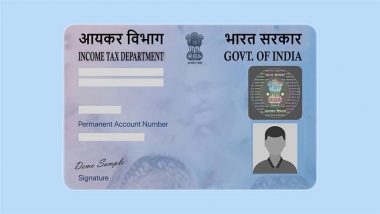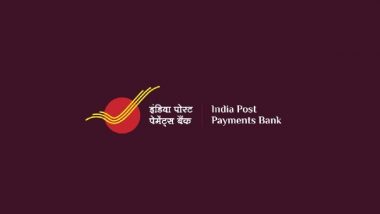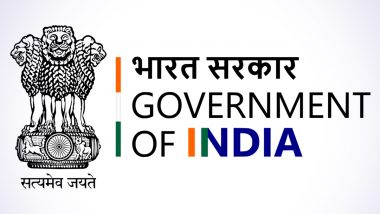New Delhi, January 11: A new phishing scam (PAN Card Scam) has emerged, targeting India Post Payments Bank (IPPB) customers. Fraudsters are sending fake messages, claiming account holders must update their PAN card details immediately to avoid account blockage. These messages include suspicious links designed to steal personal information.
The Press Information Bureau (PIB) has declared these messages as fake. In an official post on X, PIB stated, “Claim: The customer’s India Post Payments Bank account will be blocked within 24 hours if their PAN card is not updated. This claim is #Fake.” The government has urged citizens to be cautious, emphasizing that India Post does not send such messages or demand sensitive details via SMS. What Is Brushing Scam? How To Identify and Protect Yourself From Fraudsters Targeting Online Shoppers? All You Need To Know.
How the PAN Card Scam Works?
Phishing scams like this exploit fear and urgency. Victims receive alarming messages about potential account blockage, prompting them to click on links that lead to fraudulent websites. These sites often mimic official portals, aiming to trick users into sharing critical details such as passwords, account numbers, or PAN information. What Is Jumped Deposit Scam? Here’s How To Protect Yourself From New Online Fraud That Targets UPI Users.
Tips to Protect Yourself from Phishing Scams
To safeguard against scams, IPPB recommends the following:
- Avoid Clicking on Suspicious Links: Always verify the authenticity of messages or emails before clicking any links.
- Regularly Update Passwords: Use strong passwords and change them frequently.
- Verify Customer Care Numbers: Avoid engaging with fake numbers shared in unsolicited messages.
- Monitor Bank Accounts: Keep a close watch on your bank statements for any unauthorised transactions.
- Avoid Public Wi-Fi: Do not share personal or banking details while using unsecured networks.
With the rise of digital banking, phishing scams are becoming more sophisticated. Stay informed, double-check all communications, and never share sensitive details through unsecured platforms. Protect yourself by practicing smart online security habits.
(The above story first appeared on LatestLY on Jan 11, 2025 06:17 PM IST. For more news and updates on politics, world, sports, entertainment and lifestyle, log on to our website latestly.com).













 Quickly
Quickly




















